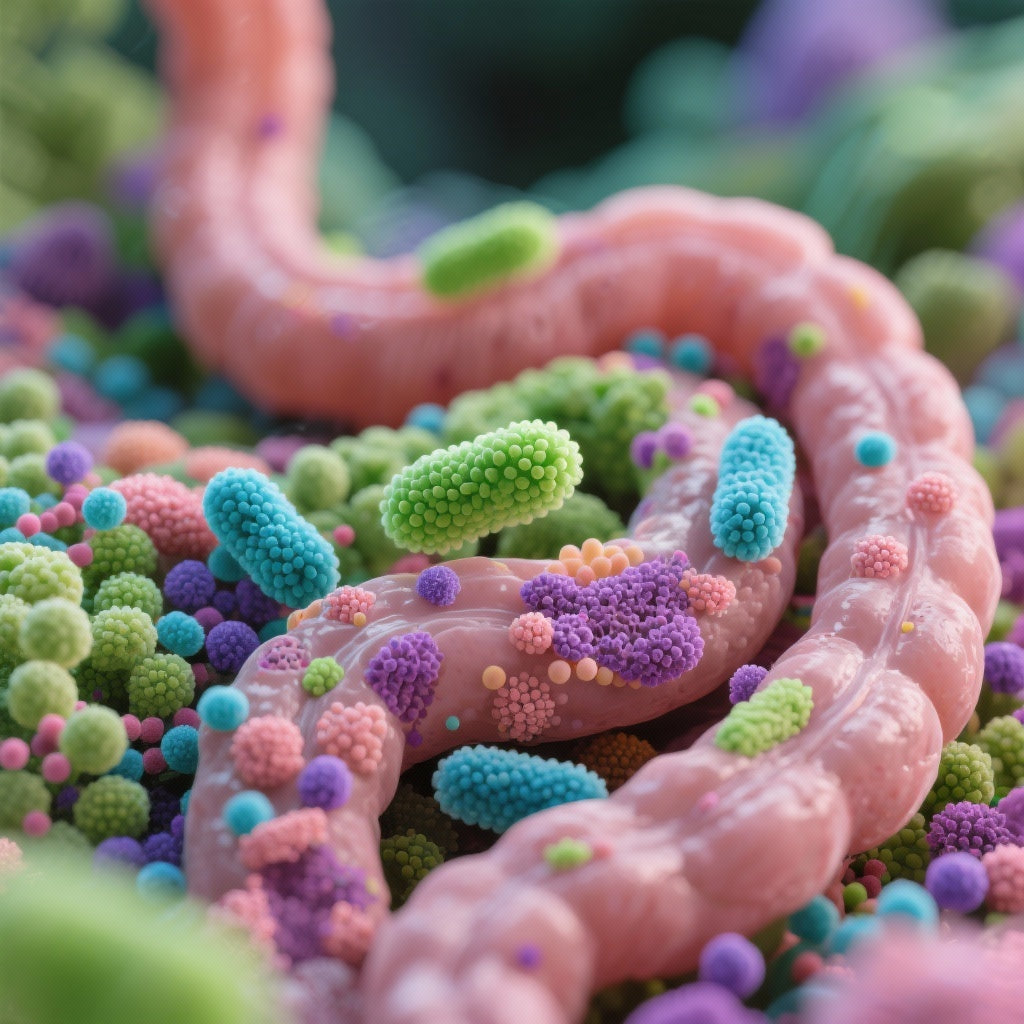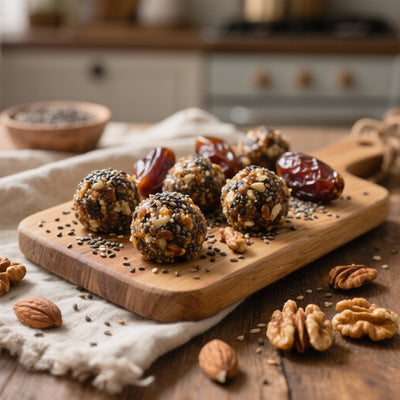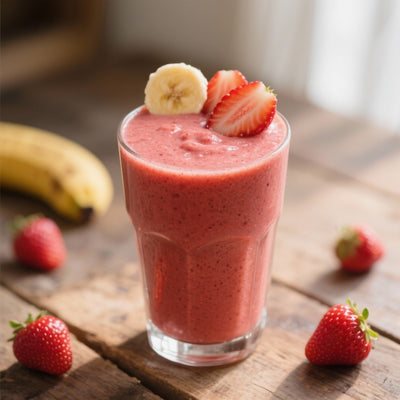Why Taking Probiotics Can Disrupt Your Natural Gut Flora
Probiotics have become the stars of gut health. Promising easier digestion, boosted immunity, and overall well-being, they dominate our pharmacies and grocery store shelves. But behind this attractive marketing lies a more nuanced reality. Taking probiotics isn't always a panacea, and in some cases, it can even disrupt the delicate balance of your gut flora. So, should we adopt them without hesitation, or should we be wary?
This article explores the complexities of probiotics and their impact on your gut microbiota. We'll break down the mechanisms at play, identify situations where they can be beneficial, and, most importantly, understand why and how they can cause an imbalance. The goal? To provide you with the tools to make informed decisions and preserve the health of your precious internal ecosystem.
What is the Gut Flora (Microbiota) and Why is it Important?
The gut flora, or microbiota, is a complex community of microorganisms (bacteria, viruses, fungi, etc.) that resides in our intestines. Far from being a simple collection of germs, it plays an essential role in our health:
- Digestion: It helps break down foods that our body cannot digest on its own, such as fiber.
- Immunity: It strengthens our immune system by stimulating antibody production and fighting against pathogens.
- Vitamin production: It synthesizes certain essential vitamins, such as vitamin K and some B vitamins.
- Mental health: Recent studies suggest a close link between gut flora and the brain, influencing mood, behavior and even the risk of neurodegenerative diseases.
An imbalance in the gut flora, called dysbiosis, can lead to various health problems: digestive disorders (bloating, constipation, diarrhea), fatigue, recurrent infections, allergies, chronic inflammatory bowel diseases (IBD), and even weight gain.
Probiotics: Definition and Functioning
Probiotics are defined by the World Health Organization (WHO) as "live microorganisms which, when administered in adequate amounts, confer a health benefit on the host." In other words, they are bacteria or yeasts considered beneficial to our bodies, which we consume to improve our gut flora.
The idea is simple: by ingesting probiotics, we introduce new bacterial strains into our gut, which will potentially colonize the area, strengthen existing populations, and restore balance in cases of dysbiosis. However, the reality is more complex. Probiotics do not always permanently colonize the gut, and their impact can vary considerably from person to person.
Why can probiotics disrupt your natural gut flora?
Despite their promises, probiotics are not without risk. Here are several reasons why they can disrupt the balance of your gut flora:
- Competition with native bacteria: Introducing new bacterial strains can create competition with the bacteria already present in your gut. If probiotics are "stronger" or better adapted to the environment, they can outcompete beneficial native bacteria, thus reducing the diversity of your gut microbiota.
- Excessive gas production: Some strains of probiotics can produce significant amounts of gas when fermenting dietary fiber, which can lead to bloating, abdominal pain, and flatulence.
- Risk of infection: In rare cases, probiotics can cause infections, particularly in immunocompromised individuals or those suffering from serious illnesses.
- Allergic reactions: Some people may be allergic to probiotics, which may manifest as skin rashes, itching, or breathing difficulties.
- Dependence: Regular use of probiotics can make your gut flora dependent on these external sources, thus reducing its ability to regulate itself.
In What Cases Are Probiotics Really Useful?
It's important not to demonize probiotics. In certain situations, they can be very useful:
- After taking antibiotics: Antibiotics destroy not only pathogenic bacteria, but also the beneficial bacteria in the gut flora. Probiotics can help restore balance after a course of antibiotics.
- In case of traveler's diarrhea: Certain strains of probiotics, such as *Saccharomyces boulardii*, can prevent or reduce traveler's diarrhea.
- To relieve the symptoms of irritable bowel syndrome (IBS): Some studies suggest that probiotics can alleviate bloating, abdominal pain and bowel movement problems in people with IBS.
- To boost immunity: Certain strains of probiotics can stimulate the immune system and reduce the risk of respiratory infections.
How to Choose and Use Probiotics Wisely?
If you decide to take probiotics, here are some tips to minimize risks and maximize benefits:
- Consult a healthcare professional: Ask your doctor or a nutritionist for advice on choosing the most suitable probiotic for your situation.
- Choose the right strain: Not all probiotic strains are created equal. Some are more effective at treating certain health problems than others.
- Follow the dosage instructions: Do not exceed the recommended dose.
- Pay attention to side effects: If you experience any adverse effects, stop taking the probiotic and consult a doctor.
- Opt for a diet rich in fiber: Fiber nourishes the beneficial bacteria in your gut and promotes their growth.
- Vary your diet: A varied diet helps to maintain a diverse and balanced microbiota.
Natural Alternatives to Probiotics
Before rushing to buy dietary supplements, explore natural alternatives to take care of your gut flora:
- Fermented foods: Yogurts, kefir, sauerkraut, kimchi, kombucha... These foods are naturally rich in probiotics.
- Prebiotics: These are indigestible fibers that feed the beneficial bacteria in your gut. They are found in onions, garlic, leeks, asparagus, bananas, etc.
- A balanced diet rich in fiber: Favor fruits, vegetables, whole grains and legumes.
- Stress management: Chronic stress can disrupt the balance of gut flora. Practice relaxing activities such as meditation, yoga, or walking in nature.
Conclusion: Listen to your body and act consciously
Probiotics can be valuable allies for gut health, but they are not a universal miracle cure. It is crucial to understand how they work, their limitations, and their potential risks. Before starting, take the time to assess your needs, consult a healthcare professional, and explore natural alternatives. Listening to your body and a personalized approach are the keys to a healthy and balanced gut flora.
Remember that diet and lifestyle play a vital role in the health of your gut microbiota. Adopt a varied and fiber-rich diet, manage your stress, and limit your antibiotic use to maintain the balance of your internal ecosystem.











